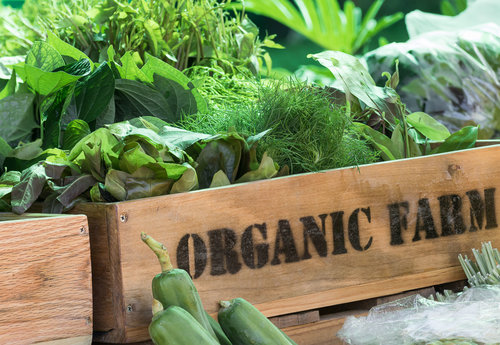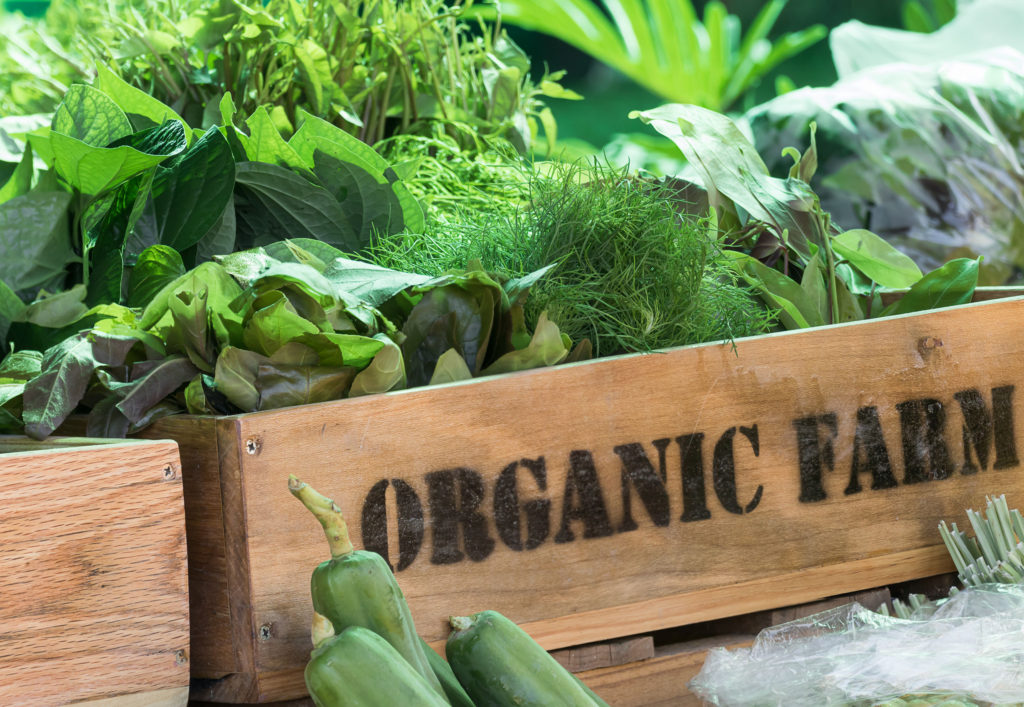Think you can’t afford to eat organic food? The truth may be you can’t afford NOT to eat organic food!
Many people ask “Why is organic food so expensive”? The real question is “Why is highly refined and denatured food so cheap”? The distinction is critical. Science is starting to show us the reason why paying more for organic food may save us money on our health bill.
Many foods require processing. Wheat berries, for example, are inedible in their natural “whole” form. Traditional farming methods grew wheat in soil that was highly amended with natural fertilizers like compost and manure. This practice adds important nutrients to the soil, creating a healthier, more robust plant that contained more nutrients for the person eating it and didn’t pollute the environment it was grown in.
Traditional processing methods:
- grind wheat into flour at the time it is needed so it’s fresh and not rancid
- ferment it for 24-48 hours (sourdough bread is one example)
- mix with a few simple ingredients like salt and olive oil and bake. Simple, delicious, nutritious.
Our modern industrial farming system, on the other hand, has created a genetically-modified wheat designed to withstand high amounts of toxic chemicals in the form of herbicides and pesticides. Chemical fertilizers high in a couple of nutrients are then added to stimulate fast growth at the expense of nutritional value and taste.
Ready to take your energy to all new-heights? check out my new e-course “6 Weeks to Abundant Health”. Check out the free preview!
The industrial food complex takes this nutritionally-void wheat berry and strips of it any remaining nutritional value (but leaves in all the toxicity of the chemicals sprayed on it during growing), adds back in a few synthetic vitamins so it can be marketed as “fortified” and adds a host of other genetically-modified, industrially-processed ingredients and toxic chemicals to make it palatable.
This system relies heavily on sugar, rancid fats and hydrogenated vegetable oils to make edible food-like substances that are cheap and filling. They are engineered to last a long time in transit and on supermarket shelves. Cheap, fast and highly unhealthy.

While this modern system of farming and creating food-like substances seems cheap on our wallets, it externalizes the true costs of the food. Externalized costs mean:
- the cost of the toxic run-off is not paid for by the company causing the pollution. This toxic run-off includes herbicides, pesticides and chemical fertilizers that pollute drinking water, streams and lakes, killing fish and other wildlife and making people sick .
- the cost of the pollution from manufacturing the chemicals and flavorings that go into the food is not paid by the company that makes them.
- the costs of the obesity, heart disease, cancer, diabetes and myriad other crippling diseases is not paid by the companies making the food that is making us sick. These diseases are strongly correlated with the refined and denatured foods we choose to eat .
So who does pay for all these externalized costs? We all do. Through higher taxes and higher health-care costs. And the cost of doctor visits, medications and lost productivity and enjoyment of life.
There are thousands of examples of nutrient-dense traditional foods that have been turned into junk food by the industrial food complex for the sake of profits.
How do you know if a food is refined and denatured?
Here are a couple hints:
- it has LOTS of ingredients. Most of them are really long and unpronounceable.
- the ingredients are not recognizable as food on their own.
- A good rule of thumb is that if a food has five ingredients or fewer, and all ingredients are readily-recognizable as food in their own right, it’s probably okay.
- Even better, make your own food as much as possible using whole, organic foods so you know exactly what is in what you are eating.
What’s important to understand is that the “cheap” food, is not so cheap. And now there is more and more science to show that with organic foods, you get what you pay for.
According to a study published in the British Journal of Nutrition, [the research] “showed that organic crops and crop-based foods are up to 60% higher in a number of key antioxidants than conventionally-grown crops and contained less of the toxic metal cadmium.
“We have shown without doubt there are composition differences between organic and conventional food. Taken together, the three studies on crops, meat and milk suggest that a switch to organic fruit, vegetables, meat and dairy products would provide significantly higher amounts of dietary antioxidants and omega-3 fatty acids,” concludes Professor Leifert.” To read the full study, check this article
Omega-3 fatty acids are important because our diets are skewed too far towards Omega-6 fatty acids, which promote inflammation in the body. Inflammation is implicated as an underlying cause in many lifestyle-related disease. Antioxidants are well-known for their disease-fighting and health-promoting properties.
Also, organic dairy, produce and pasture-raised meat is not only better for your health, it’s better for the animals, and better for the environment.
In another meta-study “analyzing 343 studies into the compositional differences between organic and conventional crops, the team found that a switch to eating organic fruit, vegetable and cereals – and food made from them – would provide additional antioxidants equivalent to eating between 1-2 extra portions of fruit and vegetables a day.
The study, published in the prestigious British Journal of Nutrition, also shows significantly lower levels of toxic heavy metals in organic crops. Cadmium, which is one of only three metal contaminants along with lead and mercury for which the European Commission has set maximum permitted contamination levels in food, was found to be almost 50% lower in organic crops than conventionally-grown ones.
Newcastle University’s Professor Carlo Leifert, who led the study, says: “This study demonstrates that choosing food produced according to organic standards can lead to increased intake of nutritionally desirable antioxidants and reduced exposure to toxic heavy metals.” Read the full article here
So next time you are shopping and tempted to bypass the organic apple and reach for the non-organic apple to save a few pennies, think about the consequences to your health.
Still think you can’t afford to eat organic?
Keep the Dirty Dozen list from Environmental Working Group handy when you shop to find out what conventionally-grown produce are most heavily-pesticide- and herbicide-laden and that therefore are extra important to buy organic:
1) Strawberries
2) Spinach
3) Nectarines
4) Apples
5) Grapes
6) Peaches
7) Cherries
8) Pears
9) Tomatoes
10) Celery
11) Potatoes
12) Sweet Bell Peppers
And always buy organic grains and products made from grains. Non-organic wheat and other cereal grains are sprayed with Roundup (Glyphosate), an herbicide used to desiccate the grain and make it easier to harvest.
Glyphosate is an antibacterial agent that disrupts the balance of helpful and harmful bacteria in your gut, leading to leaky gut syndrome and chronic inflammation and the many harmful effects that stem from these conditions. Organically grown grains are not allowed to be sprayed with the toxic Roundup.
Read this article to learn how to detoxify your body from the toxic effects of glyphosate.
